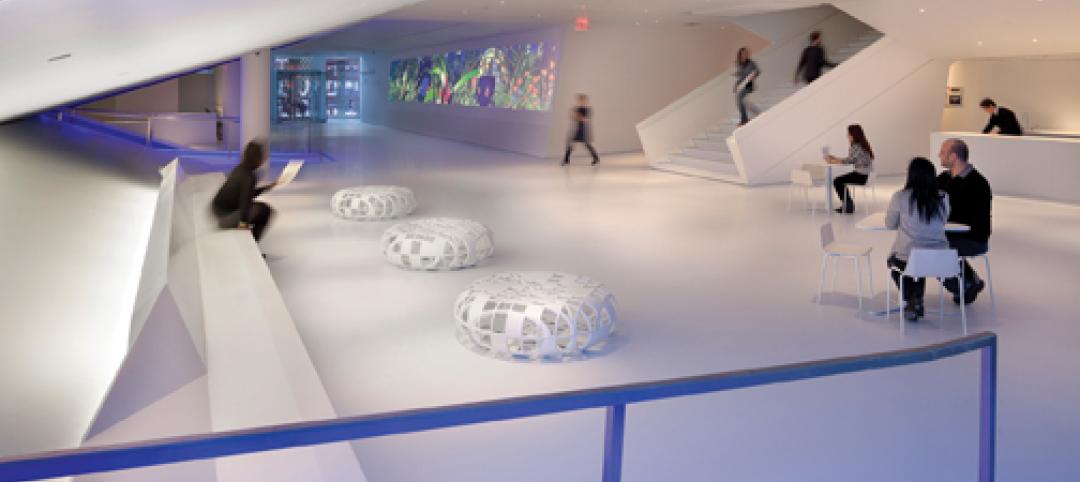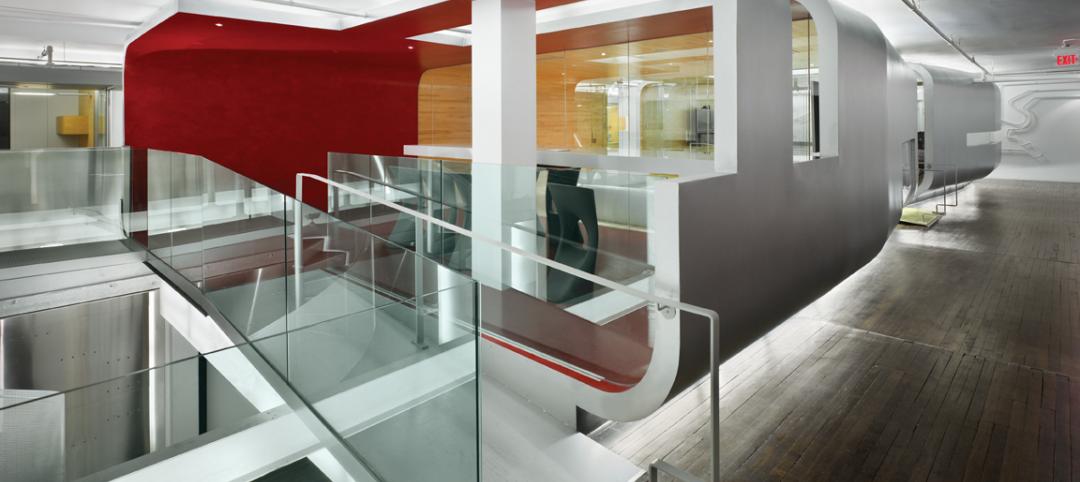At a recent meeting, the Concrete Reinforcing Steel Institute (CRSI) Board of Directors urged all CRSI producer members to revert to an inch-pound bar marking system for all sizes and grades of deformed reinforcing steel products. CRSI members produce more than 90% of domestic reinforcing steel.
The intention of this resolution is for all new rollings of reinforcing steel products to be marked with inch-pound bar markings no later than January 1st, 2014. Providing a 25-month phase in period should permit producer members sufficient time to re-tool finish roll inventory to the inch-pound marking system as rolls need to be replaced, significantly reducing or eliminating the need to unnecessarily cut new rolls to meet the resolution.
As the ASTM specifications for reinforcing steel products permit reinforcing bars to be marked in either soft metric, or inch-pound markings, existing inventory of soft metric bars can continue to be sold alongside inch-pound marked bars during and after the January 1st, 2014, phase-in target.
The intention of this resolution is to reduce confusion and the chance of errors or delays from the construction supply chain. CRSI members are strongly encouraged to revert to the inch-pound marking system for steel reinforcing bars as soon as practical to minimize any additional confusion to the supply chain of steel reinforcing bars.
This change is the result of several actions. The Federal Highway Administration no longer mandates metrification of federally funded road and bridge construction projects and all state Departments of Transportation no longer require materials to be specified and sourced in metric sizes/quantities. Additionally, a large majority of the non-governmental construction community never adopted metric measurements in their plans and specifications. The American Concrete Institute (ACI), through their Technical Activities Committee (TAC), has strongly encouraged CRSI members to mark reinforcing bars with traditional inch-pound size designations. ACI is the standards body within the United States responsible for developing the concrete building code. The concrete building code and other ACI documents reference the inch-pound size as the primary designation.
“It made logical sense for the industry to begin the process to move away from soft metric markings,” said Robert Risser, CRSI President. “None of our private or government customers are using metric plans or specifications any longer. The phase-in period will allow industry members to make the change over at minimal additional expense. CRSI is now in the process of making the appropriate changes to our manuals and literature.” BD+C
Related Stories
| Apr 14, 2011
USGBC debuts LEED for Healthcare
The U.S. Green Building Council (USGBC) introduces its latest green building rating system, LEED for Healthcare. The rating system guides the design and construction of both new buildings and major renovations of existing buildings, and can be applied to inpatient, outpatient and licensed long-term care facilities, medical offices, assisted living facilities and medical education and research centers.
| Apr 13, 2011
National Roofing Contractors Association revises R-value of polyisocyanurate (ISO) insulation
NRCA has updated their R-value recommendation for polyisocyanurate roof insulation with the publication of the 2011 The NRCA Roofing Manual: Membrane Roof Systems.
| Apr 13, 2011
Professor Edward Glaeser, PhD, on how cities are mankind’s greatest invention
Edward Glaeser, PhD, the Fred and Eleanor Glimp Professor of Economics at Harvard University and director of the Taubman Center for State and Local Government and the Rappaport Institute for Greater Boston, as well as the author of Triumph of the City: How Our Greatest Invention Makes Us Richer, Smarter, Healthier, and Happier, on how cities are mankind’s greatest invention.
| Apr 13, 2011
Southern Illinois park pavilion earns LEED Platinum
Erin’s Pavilion, a welcome and visitors center at the 80-acre Edwin Watts Southwind Park in Springfield, Ill., earned LEED Platinum. The new 16,000-sf facility, a joint project between local firm Walton and Associates Architects and the sustainability consulting firm Vertegy, based in St. Louis, serves as a community center and special needs education center, and is named for Erin Elzea, who struggled with disabilities during her life.
| Apr 13, 2011
Virginia hospital’s prescription for green construction: LEED Gold
Rockingham Memorial Hospital in Harrisonburg, Va., is the commonwealth’s first inpatient healthcare facility to earn LEED Gold. The 630,000-sf facility was designed by Earl Swensson Associates, with commissioning consultant SSRCx, both of Nashville.
| Apr 13, 2011
Office interaction was the critical element to Boston buildout
Margulies Perruzzi Architects, Boston, designed the new 11,460-sf offices for consultant Interaction Associates and its nonprofit sister organization, The Interaction Institute for Social Change, inside an old warehouse near Boston’s Seaport Center.
| Apr 13, 2011
Expanded Museum of the Moving Image provides a treat for the eyes
The expansion and renovation of the Museum of the Moving Image in the Astoria section of Queens, N.Y., involved a complete redesign of its first floor and the construction of a three-story 47,000-sf addition.
| Apr 13, 2011
Duke University parking garage driven to LEED certification
People parking their cars inside the new Research Drive garage at Duke University are making history—they’re utilizing the country’s first freestanding LEED-certified parking structure.
| Apr 13, 2011
Red Bull Canada HQ a mix of fluid spaces and high-energy design
The Toronto architecture firm Johnson Chou likes to put a twist on its pared-down interiors, and its work on the headquarters for Red Bull Canada is no exception. The energy drink maker occupies 12,300 sf on the top two floors of a three-story industrial building in Toronto, and the design strategy for its space called for leaving the base building virtually untouched while attention was turned to the interior architecture.
| Apr 13, 2011
Former department store gets new lease on life as MaineHealth HQ
The long-vacant Sears Roebuck building in Portland, Maine, was redeveloped into the corporate headquarters for MaineHealth. Consigli Construction and local firm Harriman Architects + Engineers handled the 14-month fast-track project, transforming the 89,000-sf, four-story facility for just $100/sf.















